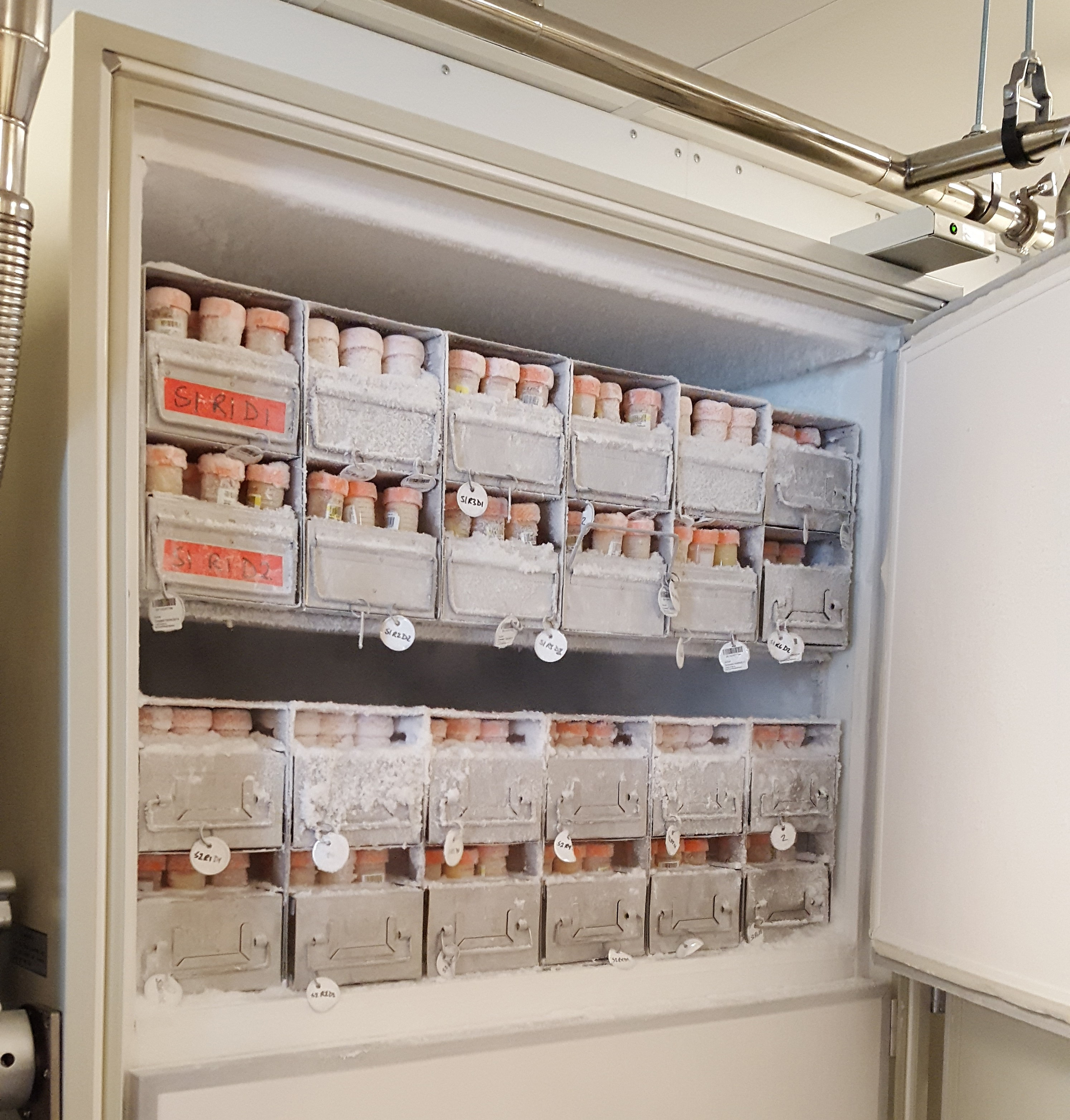
A brand new Mental Health BioBank (MHB2) launched within the U-M Department of Psychiatry in June 2017 with the aim to establish a DNA biobank for mental health conditions. A biobank is the banking of either biological materials or data in a database for future use. It can be compared to depositing your cash into a savings account.
The U-M MHB2 universally enrolls every adult outpatient psychiatry patient who consents into the genetic biobank, and provides permission to re-contact participants for additional and more specific research studies. Patients provide a saliva sample to be used for DNA extraction and access to medical record data. With the establishment of a large-scale DNA biobank for mental health, scientists will be able to perform genome-wide association studies (GWAS) to identify genetic variants associated with mental illness and treatment response. Genotyping, which is the process of determining differences in the genetic make-up of an individual by examining the individual's DNA, has become more cost effective and efficient in the last few years. This has resulted in the ability to obtain large population samples in order to examine genetic variants associated with complex health disorders, including mental health.

Liquid nitrogen cryofreezers (-190oC) used for tissue storage. Cryo-preservation is a process of storing samples at an ultralow temperature to avoid tissue damage.
“We are excited about the research possibilities that the Mental Health BioBank will offer to our department,” said Gregory W. Dalack, chair, U-M Department of Psychiatry. “Our hope is that by studying the data we collect, we will be able to better understand how to target treatments for our patients in a much more individualized way.”
The MHB2 is currently in the pilot phase to examine the feasibility of DNA collection and assessment of genomic markers associated with depression and treatment response. Combining an individual’s genetic information and treatment response to help with medication optimization, personalized medicine seems imminently possible.
This project is led by Vicki Ellingrod, PharmD, and Srijan Sen, M.D., Ph.D. It was catalyzed by philanthropic support from Frances and Kenneth Eisenberg and the U-M Depression Center.



